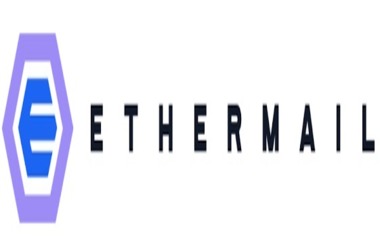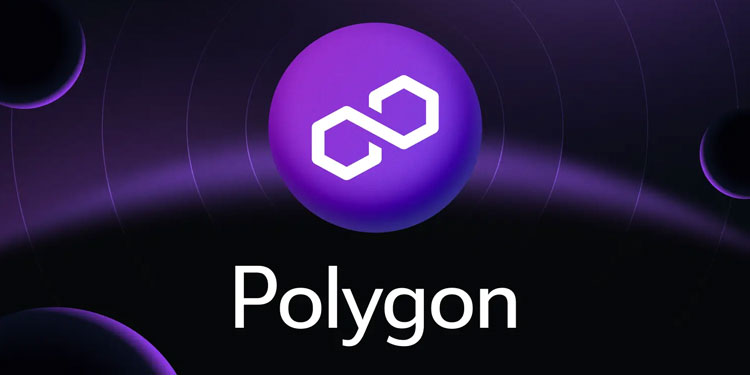 EtherMail, a cutting-edge Web3-based email communication service, has emerged as a revolutionary platform that leverages blockchain technology to enable seamless and anonymous peer-to-peer (P2P) communication among its users. As the adoption of blockchain technology continues to gain momentum, the significance of efficient communication within the Web3 landscape becomes increasingly evident. EtherMail addresses this need, providing users with the familiarity of traditional Web2 email platforms while resolving common issues such as spam, intrusive practices by legacy email providers, and centralized controls. Through its integration, EtherMail introduces a groundbreaking way for users to regain control over their email inboxes, preserving full sovereignty over the content of their messages.
EtherMail, a cutting-edge Web3-based email communication service, has emerged as a revolutionary platform that leverages blockchain technology to enable seamless and anonymous peer-to-peer (P2P) communication among its users. As the adoption of blockchain technology continues to gain momentum, the significance of efficient communication within the Web3 landscape becomes increasingly evident. EtherMail addresses this need, providing users with the familiarity of traditional Web2 email platforms while resolving common issues such as spam, intrusive practices by legacy email providers, and centralized controls. Through its integration, EtherMail introduces a groundbreaking way for users to regain control over their email inboxes, preserving full sovereignty over the content of their messages.
In an era where emails play a pivotal role in communication across various domains, including education, business, and matters of national importance, EtherMail steps in as a game-changer. According to a Zippia report, a staggering 347.3 billion emails were sent daily in 2023, with a significant reliance on established service providers like Gmail, Thunderbird, and numerous others. However, these conventional email services are not without their shortcomings. They grapple with the ever-present challenge of unwanted spam emails and susceptibility to phishing attacks by cybercriminals.
Furthermore, traditional email platforms lack encryption and anonymity, thereby enabling service providers to scan email contents and monetize user data by selling it to advertising companies. This results in users being inundated with unwanted emails and their personal information being exploited for financial gain.
One of the more significant shortcomings is the inability of these Web2 platforms to facilitate trustless communication between blockchain-based applications and users, creating a gap that EtherMail aims to fill.
Launched in 2022, EtherMail proudly identifies itself as the first Web3 email solution, firmly establishing its roots on the Ethereum blockchain. This integration with the leading smart contract network goes beyond symbolism, becoming an integral part of the service’s identity.
EtherMail’s offerings extend beyond anonymity and encrypted wallet-to-wallet communication. It also presents users with an array of compelling functionalities, aligning with the ethos of the blockchain-driven economy, where users are rewarded for their active participation. On EtherMail, users receive compensation for reading company emails through the platform’s subscription feature. This innovative feature allows users to opt in to receive email aggregations from companies, and in return, they are rewarded with EtherMail’s native token, EMT, for reading these emails. The service ensures uncompromising security and transparency by recording all incoming and outgoing emails on the blockchain, rendering them tamper-proof once deployed.
Additionally, the blockchain seamlessly synchronizes all emails for Web3 users in real-time, ensuring they remain well-informed about the decentralized applications (dApps) and services they engage with. EtherMail’s Paywall serves as an indispensable add-on service to the subscription functionality, acting as a protective filter against spam emails from companies. This allows users to tailor their email preferences, ensuring that only relevant, valuable messages land in their inbox. The Paywall also doubles as an incentive tool, rewarding users for engaging with emails from advertising companies, giving users complete control over the content entering their Web3 mailbox.
In the spirit of the Web3 ecosystem, every email activity performed on EtherMail is intrinsically linked to a user’s crypto wallet. Users simply need to connect a cryptocurrency wallet to get started, enabling them to access and manage emails using the same crypto wallet that stores their digital assets. This integration not only offers convenience but also provides users with relevant information about their stored assets in real-time, empowering them to make more informed decisions.
EtherMail, despite its Web3 focus, also offers compatibility with conventional Web2 email service providers. Users can link their existing Gmail, Safari, and Thunderbird accounts to the platform, bridging the gap between traditional and Web3 email services.
At the heart of the EtherMail protocol are the EMC and EMT digital assets, both of which serve as reward systems for new and existing users who transition to the EtherMail service and engage with their emails. The EMC token, in particular, represents a beta version of EMT, which is still in development. As part of this transition, all EMC holdings in EtherMail users’ wallets will be seamlessly converted into the EMT token.
EtherMail is not just committed to enhancing email services for Web3 users by facilitating permissionless and encrypted communication; it also offers distinct advantages tailored to the needs of Web3 companies. The platform automatically adds users to their mailing list based on on-chain activity, enabling Web3 dApps to significantly expand their clientele base without the need for direct persuasion.
Upon interaction with a particular blockchain network, users are automatically added to the protocol’s contact list for further engagement. EtherMail provides an extensive selection of segmentation filters, allowing businesses to customize their communications with different groups, ensuring that relevant information reaches the intended recipients without confusion.
The service also offers a versatile ‘campaign builder’ feature, empowering companies to create personalized email campaigns tailored to their specific audience. Additionally, EtherMail incorporates an in-built affiliate system, which not only reduces marketing expenses for businesses but also transfers the role of marketing to community members who are directly rewarded for their efforts.
In essence, EtherMail is reimagining the very essence of email services, aligning them with the rapidly expanding Web3 landscape. By providing anonymity, encryption, and sovereignty, EtherMail effectively addresses the pressing concerns related to phishing attacks, spam emails, and privacy vulnerabilities that have long plagued traditional email providers. As the decentralized service of the future, EtherMail promises to be a pivotal force in the coming years, setting new standards for secure and anonymous communication within the Web3 ecosystem.








